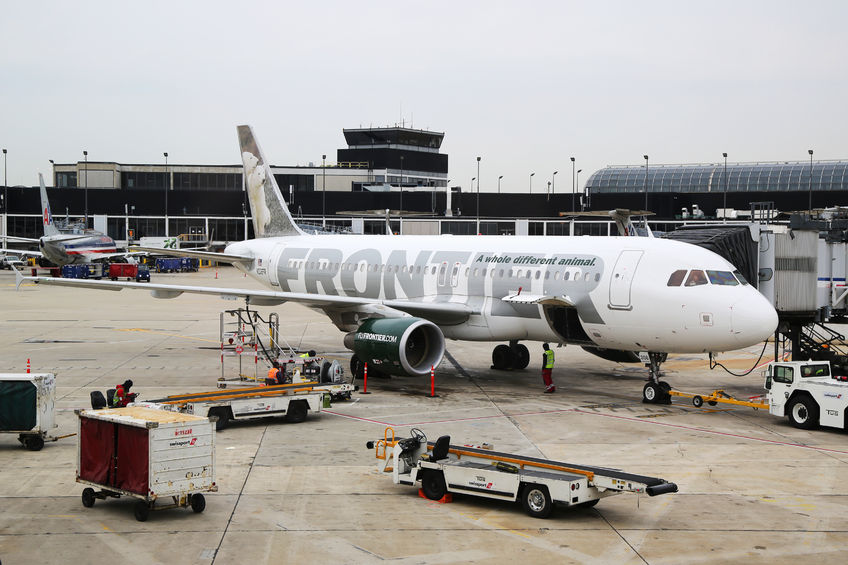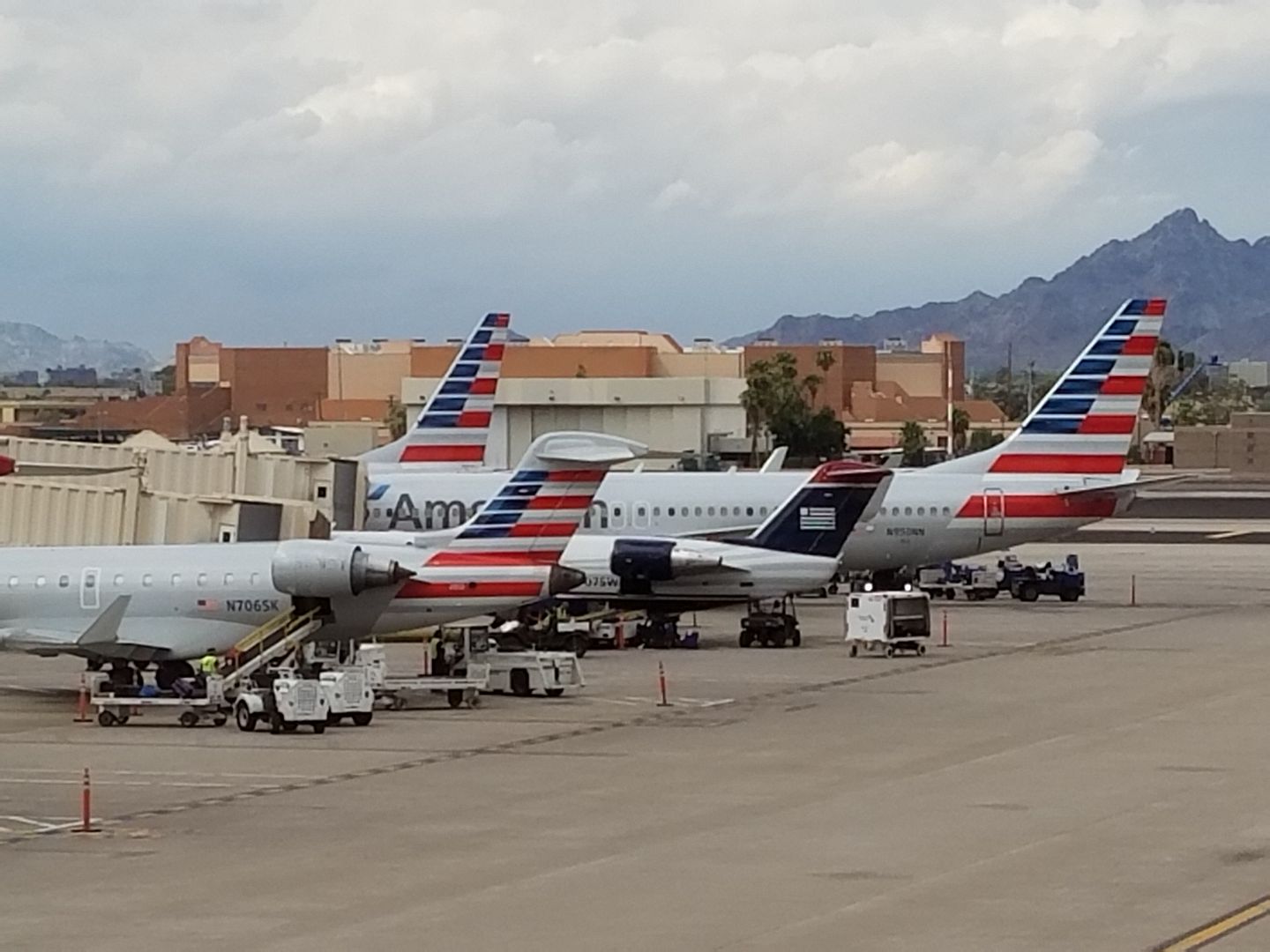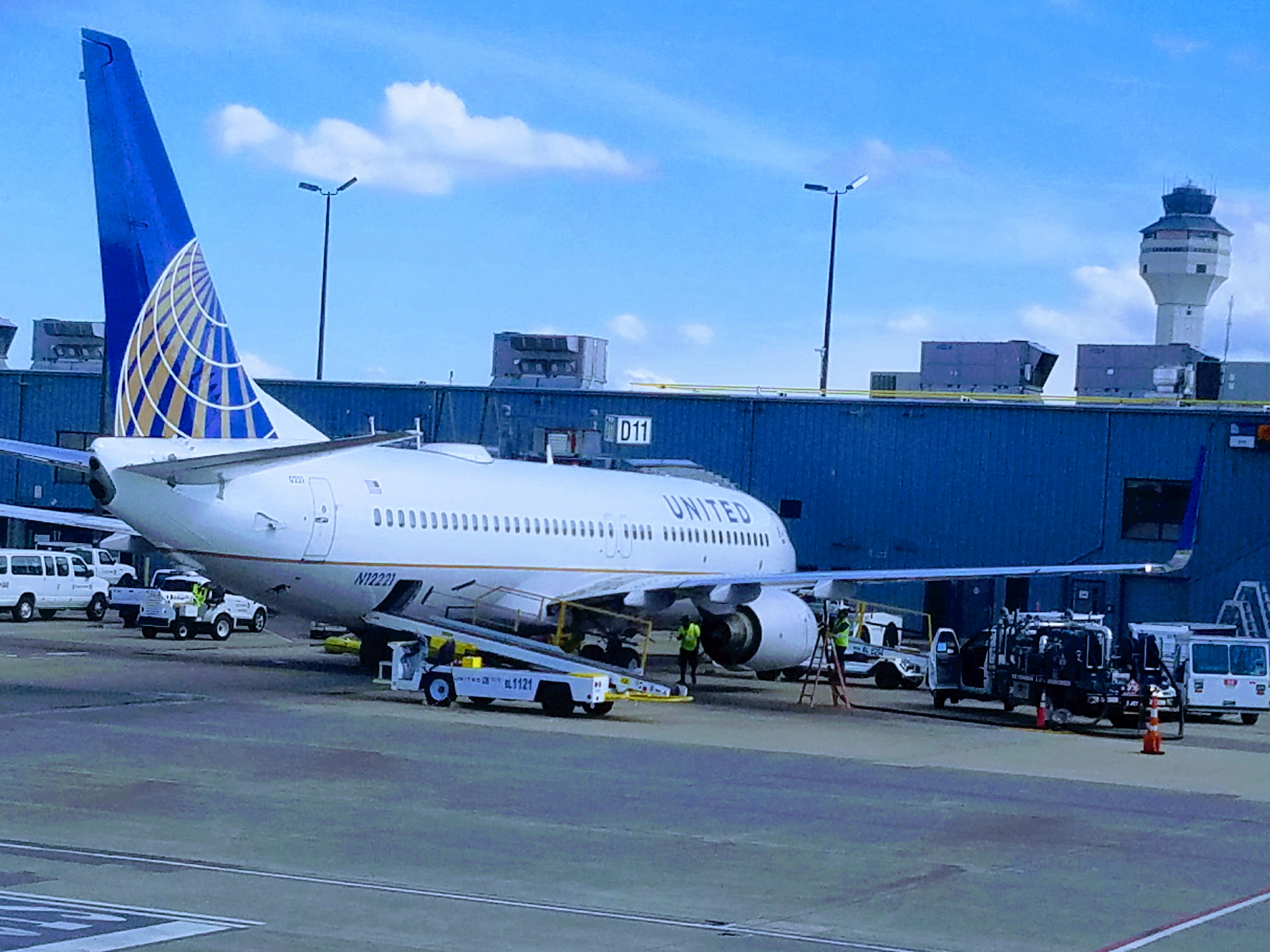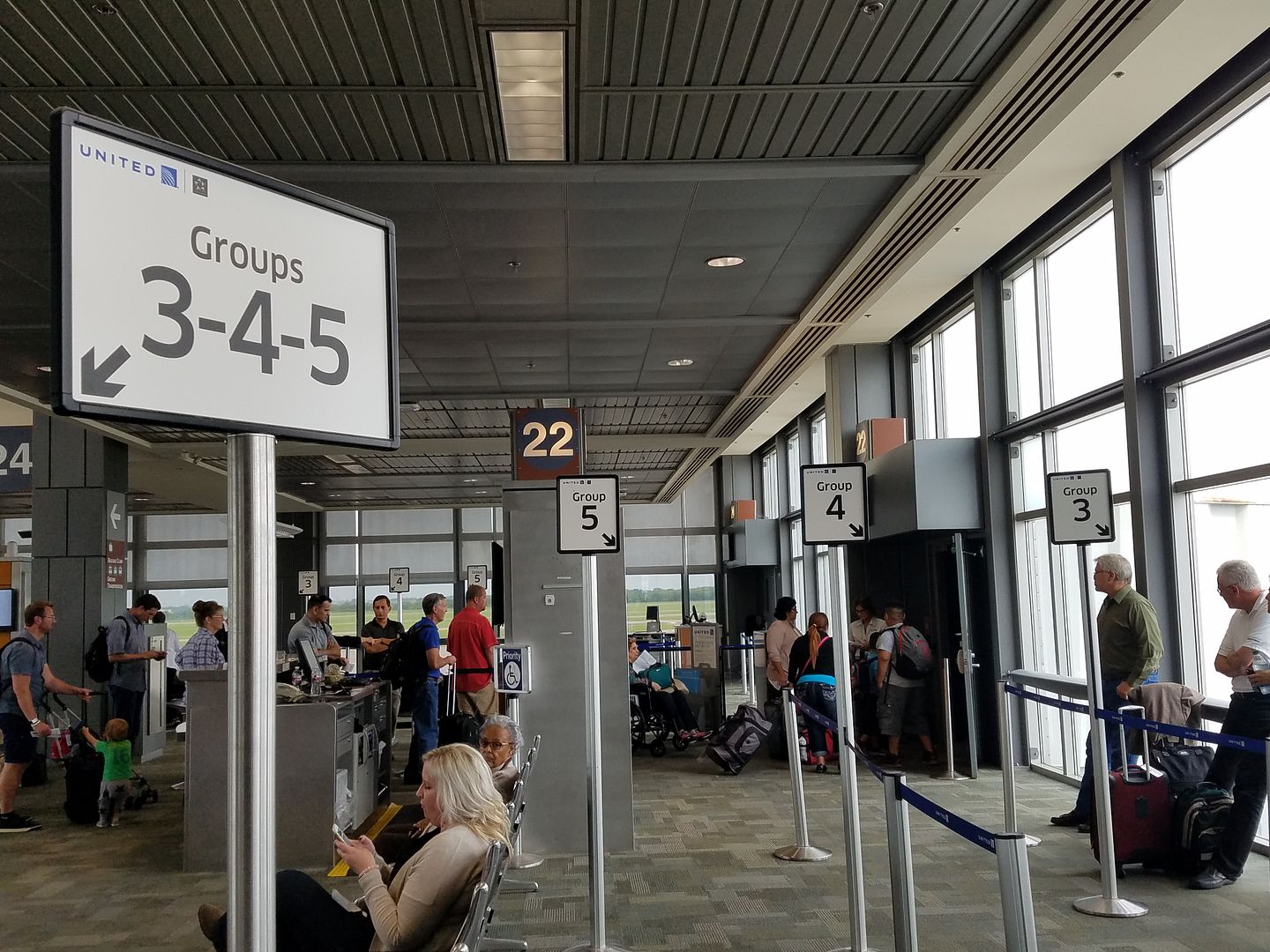Airlines earnings calls are often fascinating. You’d expect airlines to say as little as possible in public, even in respoinse to analyst and journalist questions, but I still love to listen because executives will drop wisdom and share how they’re thinking broadly.
Scott Kirby has always been one of the best (and most infuriating as a customer) to listen to. United’s 2nd quarter earnings call this morning was no exception.
United’s Not Worried About Frontier in Denver
Kirby snarked about Frontier developing a hub operation in Denver, suggesting that’s what put them into bankruptcy before (although with a very different cost structure and business model, so hardly fair).
He said he’s believed for a long time that ultra low cost carriers can’t compete with mainline carriers when mainline carriers match on price. He thinks that’s especially true now with Basic Economy, but I’d argue that the differentiation that causes customers to book away from Spirit or Frontier in that situation – mainline carriers used to offer more value at the same price but United no longer does – is gone precisely because of Basic Economy.

Copyright: zhukovsky / 123RF Stock Photo
United Promises Not To Compete Too Hard Against Other US Airlines
As United grows in domestic markets, financial analysts are concerned that though it could be to United’s benefit to take back market share this sort of capacity and competition could be “disruptive” and Kirby went to lengths to suggest that their growth won’t be disruptive. Disruptive is precisely what competition is supposed to be with airlines pursuing their own interests rather than pseudo-colluding with competitors to avoid ‘disrupting’ each others’ businesses.
Large investors generally own the whole sector rather than betting on a single carrier, so their push seems to be that airlines should avoid competition because it’s bad for the industry even as it might be good for the individual business.

Many Changes Take Time to Improve Revenue
Kirby often explains industry basics in a smart way, especially when financial analysts ask stupid questions – like whether United’s new method of taking volunteers for oversold flights days in advance (which hasn’t broadly rolled out yet!) is improving the airline’s revenue as a result of giving customers more confidence they won’t be bumped – he’s incredibly patient and clear. On this call he explained that when an airline starts a new domestic route you expect that it will be at least 6-12 months ‘ramp up’ before the route performs to expectation. In other words, you lose money when starting a route.
He explained that the airline’s process of launching its new yield management system Gemini also won’t lead to financial results right away. They roll out first part of new system at the end of August but he “wouldn’t expect meaningful changes to revenue for a little while” because “those changes take one step back two steps forward.” They’re turning off old system which has “15 years cumulative intelligence built into it” and it takes time to tune the new system and to build in enough data to make good projections for how much inventory at each price point to offer on a given flight.

Basic Economy Fares are Costing United Market Share — But They Think That’ll Change
Kirby admits that Basic Economy fares aren’t driving revenue improvements at United either, though he believes they eventually will.
Basic Economy fares are not new lower priced tickets. They’re the same lowest fares as before, just with new restrictions like an inability to assign seats in advance or bring on a rollaboard bag. Airlines are making travel on these fares more difficult hoping to get customers to spend more money to avoid them. Put another way, they’re a complicated price increase.
However at the same price Southwest, JetBlue, and Alaska are much better values than United (or American where they offer these fares).

Previously United and American claimed most customers were buying up to more expensive fares to avoid basic economy. I suggested they were only saying those who bought tickets from them were often buying higher fares and they were telling us nothing about customers who were booking away onto other airlines.
This time Kirby suggested that some customers are paying more as hoped, while others book away. They’re willing to lose business in the short term because they believe competitors will follow them.
We’ve got basic economy rolled out across the system, but we’ve been for the last couple of months, one of our big competitors essentially hasn’t rolled it out. They’ve got it in less than 1% of their system. There are a bunch of places where we’ve been uncompetitive from a pricing perspective. Normally we worry a lot about pricing competitiveness in the near term. We’ve been willing to be uncompetitive on price in the short term as we try to get this sorted out what it’s going to look like for the next 20 years instead of worrying about the next 2 months. I think by the end of the year we’ll have a position where everyone all the big network carriers will have rolled out Basic Economy throughout their whole system. And at that point I think Basic Economy will be more of a tailwind. It’s less of a tailwind right now because you can get our standard product on our competitors for the same price you can get Basic Economy on United. We get benefits from selling up more customers but I’m sure we lose some share as a result of that as well.
This is very simple, though many readers have inexplicably disagreed with me: United is offering less value at the same price as competitors. Some customers won’t know this (Expedia for instance doesn’t do a great job educating customers about the difference in these types of fares). But enough will know the difference and book airlines offering non-basic economy type fares when United offers more restrictive fares.
These fares aren’t cheaper, and Scott Kirby reiterates this. Basic Economy is effectively a fare increase, albeit a complicated one. By offering Basic Economy fares at the price others are offering regular fares, like-to-like United may be $15 or more each way more expensive.
And as a result people are booking away from United. Kirby admits United is losing business from Basic Economy.
American Airlines right now is at a competitive advantage in not offering these fares in all markets. Kirby concedes that people are booking American instead of United because they’re a better value. Nonetheless American is likely to consider to play the Greater Fool and give up that advantage.
Once that happens there will be fewer options that are better than United, and United will lose less business as a result of Basic Economy fares. But Southwest is still the biggest domestic airline and they offer customers a better deal. So does JetBlue and Alaska. So they’ll continue to bleed business — just not as much.


United’s race to the bottom is not sustainable. I don’t care what Scott Kirby thinks. Low fare carriers offer the same low prices and services (or lack of) to everyone onboard. They don’t sell fares so 21 A & C can use the overhead bins but the person in 21B can’t. It’s a bizarre move and it upsets and alienates their better customers who tend to pay more for business tickets and who tend to be more loyal. They’ve also severely cheapened the product. Even 1K’s & Globals sometimes end up in coach or miss a connection. The new slimline seats and the new basic economy just make flying United a horrible experience. Even as a million miler and a 1K for more than a decade I go out of my way to avoid flying them. In the past I would be willing to make a connection just to stick with United but those days are over. They better save their money while times are good because during the next recession consumers and Mileage Plus Elite members will remember how they were treated and look elsewhere. They are penny wise and pound foolish.
“How do we do it? Volume, volume, volume — we lose a nickel on every sale, but we make it up on volume . . . ”
Yeah, right.
I just took my first Frontier flight, cvg-lax. In the past it would have been unthinkable that I would have left 2k miles on the table by not flying my preferred carrier (dont care at all about FF @ Frontier). But the airlines combination of cheaper first class (don’t care about upgrades) and eviceration of ff programs has freed me to fly anyone as needed. Delta was twice the price on the same route, and frankly Im going to use the savings to buy a $450 one way lax-bos leg in 1st.
The big 3 have unlocked many people from the compulsion to be loyal and now more than even, the competition is simply about price and convenience. In my example it was Delta’s loss but United is not is the best position to deliver on either front as well.
“Kirby often explains industry basics in a smart way, especially when financial analysts ask stupid questions”
It wasn’t a stupid question, it was “analyst speak.” The analyst really wanted to know how far along they are with the initiative and what timeline to bake into the model, but if they asked it that way, Kirby would have dodged. By asking if the initiative has helped revenue already, the analyst got Kirby to answer in a way that gave a timeline of when it will start kicking in. Now in future calls/meetings they can be held to that timeline and asked the degree of impact it has on revenue.
Even as a million miler and a 1K for more than a decade I go out of my way to avoid flying them. In the past I would be willing to make a connection just to stick with United but those days are over. – Mark
The big 3 have unlocked many people from the compulsion to be loyal and now more than even, the competition is simply about price and convenience. -Steve
Both Mark and Steve are spot on. The next recession will really hurt the Big 3 with their cost structure
@Rob — Except that United *doesn’t* believe the project will be revenue accretive, that customers will choose United on the basis of likelihood of being involuntarily bumped, they believe this project will be a cost savings (and time, which entails cost savings) preventing involuntary bumps.
United is so foolish.
Ever since Basic Economy rolled out, United has been outrageously expensive compared to other carriers. I now mainly fly Delta and Spirit out of IAH even though there are few flights out of IAH where Delta doesn’t require a connection and Spirit is, well, Spirit. Even as a million miler Gold, United isn’t worth it. Who still sees value in flying United, 1Ks? Global Services? The experience United gives to general members is basically on par with Spirit and United is going to keep losing customers if they keep Scott Kirby around.
I love the pressure Frontier and the rest are putting on United. I hope it pushes them back toward bankruptcy. Serves them right.
A family member flew Frontier recently and vowed “never again”. United is crazy to copy Frontier’s offering.
Southwest offers some things, like a free carry-on, but you can’t pick your seat, not even for an extra fee. That disqualifies them for me, same as it disqualifies United’s Basic Economy.
I tried to post a comment to your blog when it was announced that Scott Kirby was leaving American for a position at United. What I mentioned at that time was that as soon as Kirby got settled into his new position, he would collude with the other airlines not compete with them. To work to get as much from consumers as possible. As opposed to having a competitive business model. A blind person could see this was coming.
But you never bothered to allow my comment to post to that article. And now your surprised to here these comments coming from Kirby at this mornings earnings call? So much for being a thought leader in travel
Maybe I’m just lucky . . . or maybe I approach it differently, I don’t know, but in the past 10 years, I’ve flown more than 260 times. Those flights breakdown as follows:
a) US legacy carriers — 38 times. AA (+12 on US Airways); DL 0 (+2 on Northwest); UA, 14.
b) US “next level carriers” — 202 times. Alaska, 5; Hawaiian, 6; JetBlue, 7; Southwest, 62; Virgin America, 122.
c) US ULCC — 0 times. Allegiant, 0; Frontier, 0; Spirit, 0.
d) Foreign carriers — 22 times.
In terms of class:
1) First class, 38 (all domestic);
2) Business, 13;
3) Premium Economy, 35;
4) “Regular” Economy, 176.
5) Basic Economy, 0.
I’m not sure why some people think it’s so hard to avoid the legacy carriers, nor why people adore ULLCs. But for me, the answers are “it’s easy,” and “I hate them.”
Though likely all readers of this blog understand that value proposition (or lack thereof, rather) of Basic Economy vs. LCC, the average person on the street doesn’t. I agree with Gary (and others) that in a perfect information environment, the rational consumer would likely choose a LCC over UA BE fares.
The best way to have this play out on a level playing field is to provide as many avenues to perfect information as possible for the average consumer. There should be articles in USA Today, talk show appearances, etc. with people like Gary who understand the advantages of LCC vs. Legacy BE and who can explain them in basic terms to a less travel-savvy populace.
That would be a significant public service and would give Legacy carriers what they deserve.
Hope that Chris Elliott or others could see the benefit to their readers of such an article.
Meh. So long as people are eager and willing to be treated like cattle in exchange for saving a few shekels, it’s hard to fault the airlines. It’s the Walmartization of airline industry. Lousy service and crummy experience in exchange for cheap, low quality merchandise – the “Walmart Way”. Nobody to blame but ourselves, so quit the faux outrage and handwringing.
@Keith S – why on earth would I remove that comment?! Perhaps it didn’t post right away, went into the moderation queue, and I had to manually approve it?
People are constantly complaining that their blog comments are being “censored” — usually because of how mind-blowingly brilliant they are — when in 99% of cases it’s just a temporary technical glitch or moderation/spam issue. I assume these are the same folks who leave one-star reviews for casino apps, frothing at the mouth about how they’re “rigged.” 😉
Keith S. and all similar commenters who complain that their comments are deliberately trashed are flaming narcissists.
Does it cost the airline anything to let you pick a seat or bring a roller bag? Almost nothing
So customers know non-basic economy adds more value and are booking elsewhere but united is going to keep doing the same, charging regular fares for basic economy.
Listen, customers want value, you would be better off giving them as much value as you can and charging most people a little more.
Free rollerbag carryon, drinks, better meals, better seats and screens than your competitors all for slightly more.
I wonder what will happen when the Kayaks and Google Flights of the world start letting people filter out Basic Economy in their searches. Google already can warn you that there will be costs for carryon bags when you select a flight (which makes it pretty easy to ignore or mentally add $20). If people are already booking away from them, I feel like that’s going to get worse, not better (especially after people do fly it once, say it sucks, vow never to do so again, and then figure out how to filter those flights…).
United’s basic economy fares are actually a boon for Southwest who doesn’t charge for checked bags and who doesn’t charge for carry on bags. It’s also a huge risk to fly UA without a seat assignment. If a flight get cancelled you can forget about getting on another flight for that day. BE customers are at the bottom of the barrel and they will be treated like garbage by UA agents when being re-accommodated. I know a family that got bumped in Houston going to Aspen and it took them 2 extra days to get there. NO WAY would I ever risk that to save a few dollars. If UA was smart they would make their service the best and charge slightly more. Then they would get all the best business travelers who could justify $20 or $30 more to have a better flight experience. Instead their racing to the bottom with Spirit and Allegiant. Just plain stupid. I’ll be flying elsewhere.